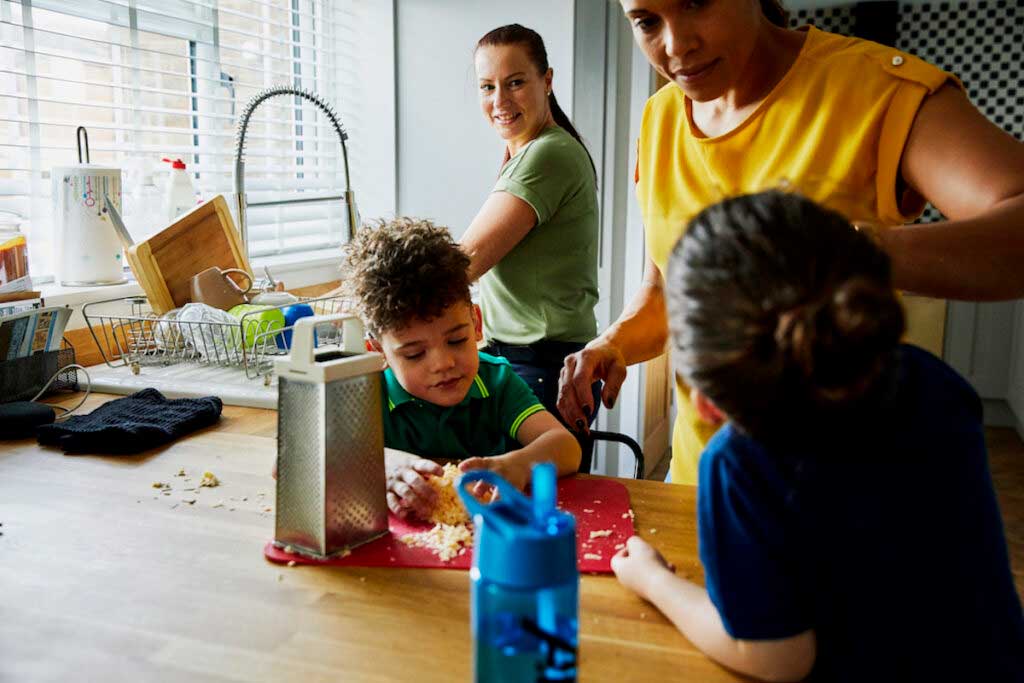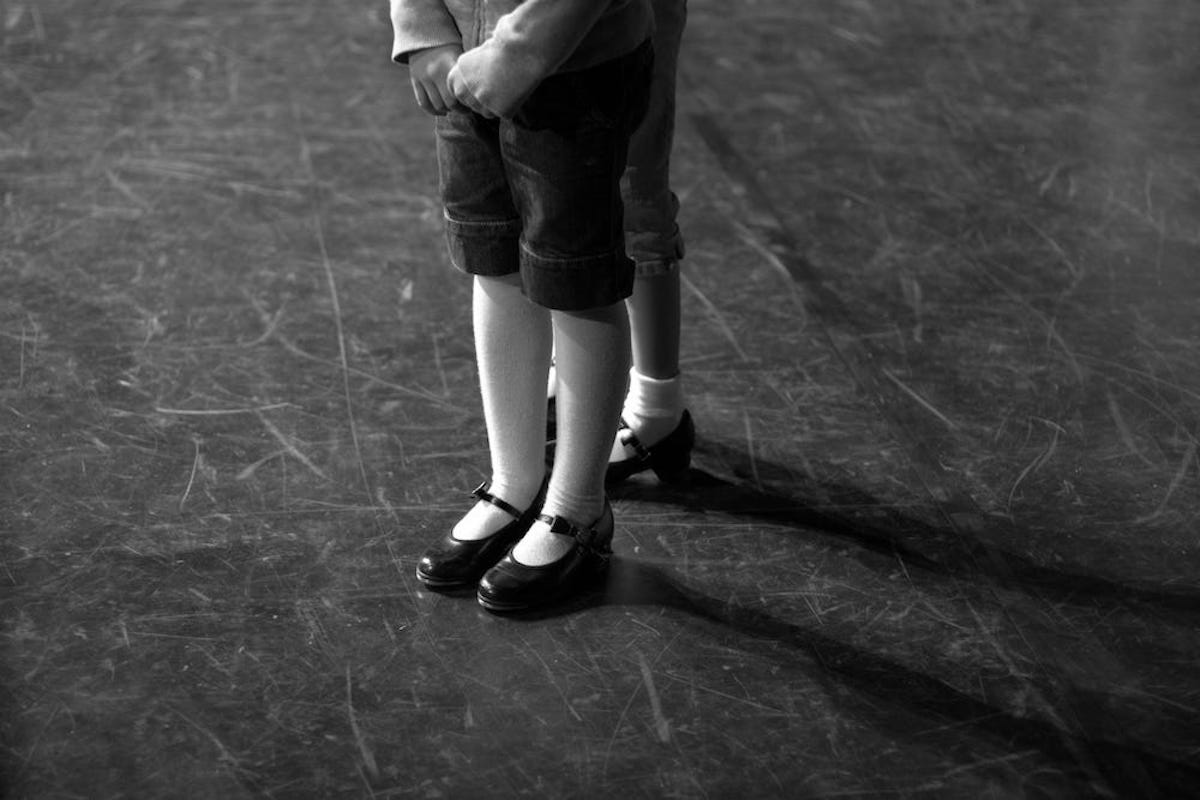We are back today with another edition of our Family Firm-inspired series on what “one thing” you’d fix to make your household function more smoothly.
As a reminder: several months ago, I wrote a post encouraging people to consider what “one thing” they’d like to change to make their daily life a little easier. You guys wrote in with absolutely amazing things — many, many more than we could follow up on. But we picked a few representative cases and did a deep dive into the problem and possible solutions.
I posted a few weeks ago about a homework-end-of-day chaos problem. Today we’re talking about kids and eating.
As before, my hope is that you’ll see some ideas for your own “one thing” in these discussions, even if you do not have this exact problem. (Note: These emails are real, but we’ve changed the names.)
The problem
Mealtime with my twin almost-3-year-old girls. They are fairly picky. Always want the same simple kids’-food-type thing (though never the same as their twin sister). Their preferences constantly change, so if they eat all the strawberries in one day and I buy more strawberries, they magically don’t like them the next day. They also want to play with their food or constantly get up from the table. I have a bit of a Well, they are toddlers and we’re doing our best mindset, but my husband gets extremely annoyed that they will not sit and eat a meal. It causes a lot of stress in our household and would be the one thing I feel I need to improve/fix first!
—Savannah M.
When Savannah and I followed up by phone, I got a few more details. The overarching theme, in my takeaway, was that dinner had become a very unpleasant experience. The baseline core issue is the kids were not sitting or eating consistently. But the bigger picture was this was stressful to both Savannah and her husband and causing some conflict. They had different views about what should be going on at meals, and Savannah was stressed-out about both the conflict there and her own frustration at some of the eating patterns.
We also talked a bit about the pressures when eating was occurring around other family members, with different expectations. This part is likely to resonate with many people as we head to holiday meals and our approach to feeding our children is subject to the scrutiny of every third cousin once removed.
The goal: to make dinner less unpleasant.
The reflection
Thinking this through, Savannah really had two separate issues.
One issue was the direct one with child eating. Three-year-olds are notoriously bad eaters (not all of them! But many!). Pickiness in kids really ramps up around 18 months to two years, and often doesn’t get better for several years. This can be both frustrating and concerning to parents, especially since kids younger than that often eat very easily. It’s developmentally normal but can be a surprise. So one thing that Savannah needed was some thoughts on how to improve these issues with pickiness.
However: a much more central issue was the reaction that the family was having to this. There are a lot of perfectly fine ways to have meals. You can have kids eat pasta at the table. You can let them run in circles and eat pasta. You can make a separate meal for kids, or insist that they eat what you make for the adults. You can give them fruit during the meal, or after. You can give them fruit before! You can make them new foods mid-meal (although I do not recommend this, just for your own sanity).
The reality is that any of these can work if they work for you. And by “work for you,” I mean that everyone has agreed that that is the set of guidelines that we live by. The reason this is important is because what often doesn’t work is when the guidelines and rules are constantly changing and different people have different views about what they are.
If I think that the rule is that the kids sit at the table until at least one adult is done with their meal, and you think that the rule is they have to sit only until they are done, one of us will be consistently disappointed.
The other thing that will lead to consistent disappointment is expectations over things you cannot control. You may really, really want to have a guideline saying “Everyone must enjoy the vegetables at the meal.” But actually, you cannot control that. And there are many data-based reasons why coercive eating approaches (“You cannot have dessert until you finish the broccoli”) are a mistake.
In talking to Savannah, it sounded like there wasn’t a concrete set of expectations about meals. She and her husband may have differed somewhat in their ideal, but it wasn’t clear that they had even settled for themselves as individuals what they thought the guidelines should be. And when Savannah was thinking about meal success, many of her metrics were things she could not control.
The proposed solution
When I wrote to Savannah (my email is below), I focused on two things. First and foremost: the idea of having a plan that focused on expectations that were in her control. And, second, pointing her to some of the data-based guidance on child eating. There is more on this data in The Family Firm and in this post. (On reflection, I could also have pointed her to Caroline Chambers’s excellent blog for meal ideas.)
Dear Savannah,
Nice to talk! Some follow-up…
To consider:
- Writing down a plan for how dinner (or any meal, but let’s take dinner) will go with the twins. The plan should include anything you can have control over (when food is offered; is there a standard backup food; how long do you have to sit at the meal for; what is said if you get up and try to mess with the lights; etc.). The plan should not include anything about how much anyone has to eat!
- Do this with your husband also involved, even if you are the main implementer.
- Try to implement the plan consistently for some period (10 days?) and then evaluate how it went.
- When you are with the kids eating, try not to worry as much about what they are eating, which is not in the plan.
- Depending a bit on the kids, I might actually announce that this is a new policy before you start it: “Here are the new dinner rules.” I would for sure with a 5-year-old, and I think they could handle it!
Overall data points to consider/thoughts:
- Coercive eating (eat this and then you get that) is short-term effective (or can be) but not long-term, so try to avoid.
- If you implement a standard backup meal, it should not be something you have to make like a short-order cook or something they like so much they will always choose it.
- You could “course” dinner so fruit comes last if you are worried about fruit overconsumption.
- Try to bring topics to dinner that they enjoy discussing.
Also, be nice to yourself! I’m all for thinking carefully about this, but not for having it make you feel like a failure.
—Emily
(Rereading this, I think perhaps the idea of bringing topics that your 3-year-olds enjoy discussing is a bit far-fetched. But maybe the most recent PAW Patrol episodes?)
The follow-up
Savannah said she’d try it out, and I checked in a few months later. Here’s the update…
Here is some quick feedback/notes, and I’m always happy to share more:
- I love serving vegetables before the meal even begins now. That was such a great tip, as they do eat more veggies while they are the most hungry and have no other options.
- Similarly, holding fruit back was also a great tip we have implemented. Sometimes they will not even ask for it and are just focused on the other items served. However, I struggle with how to respond when they do ask for it. I usually say something along the lines of “Once you’ve finished the dinner on your plate,” but that is still commenting on what I want them to eat, which I am now trying to avoid.
- Not pressuring them in any way has resulted in them trying more or eventually eating something on their plate they initially refused — this has been a big win!
- I still have one twin who will flat-out refuse to try many new foods no matter the approach. She’ll starve before she gives in on taking a bite, and I feel like I’ve tried all the approaches I can think of, including leaving her alone, holding back other food, making it a game, bribery, etc. I’m open to any suggestions there!
- I’ve become very aware of how our society comments on and encourages eating with toddlers. Everyone else in their life, from grandparents, babysitters, teachers, other parents, etc., makes comments like “Take a few more bites” or “You have to eat your broccoli first.” They are also quick to offer alternatives, which is difficult with two, as once one is offered something else, the other wants to get involved. We still need to work on setting boundaries when others are involved at mealtime, which has been really tricky. I find that I still get embarrassed when my twins are not eating well in front of others and maybe get a bit defensive. I need to work on my response to all the feedback/input/trying to help.
- Certainly the time and place of meals is a big factor, so I try to set them up for success when possible and manage my (and that of those around us) expectations. Going to an open-seating picnic-style meal with a lot of people and activity is just not the setting for them to eat a solid meal. However, as a family of four all around one table when they are hungry and not distracted has improved, and we have enjoyed more meals together!
- I’ve also gotten them appropriate tools to help me prep dinner, which has made them more excited to eat the dinner. They love standing on their stools in their aprons and cutting up cucumbers with their toddler knives, for instance.
Thank you for following up! I’m always open to trying suggestions and sharing feedback. As a parent, I’m realizing our children really are little experiments in using the data we have to reach desired outcomes!
—Savannah
Final thoughts
I love this response, because I think it illustrates the value in this approach and also the realism of recognizing that things are often still a work in progress. I love the implementation of veggies, and also involving kids in dinner prep with toddler knives (we have these). I love that there is a win in not pressuring kids to eat. And I really, really love that the tone feels less frustrated than when we first talked.
At the same time — some kids will not eat new things! And eating around other adults can be a stressful experience no matter what. Setting the right expectations is great, but it is hard to be gentle with ourselves when other people are criticizing our children.
In the end, the last point here is spot-on. Experimenting on our kids (in small ways!) can be interesting and useful. Approaching it with openness, and the right set of expectations, will make it better.

















